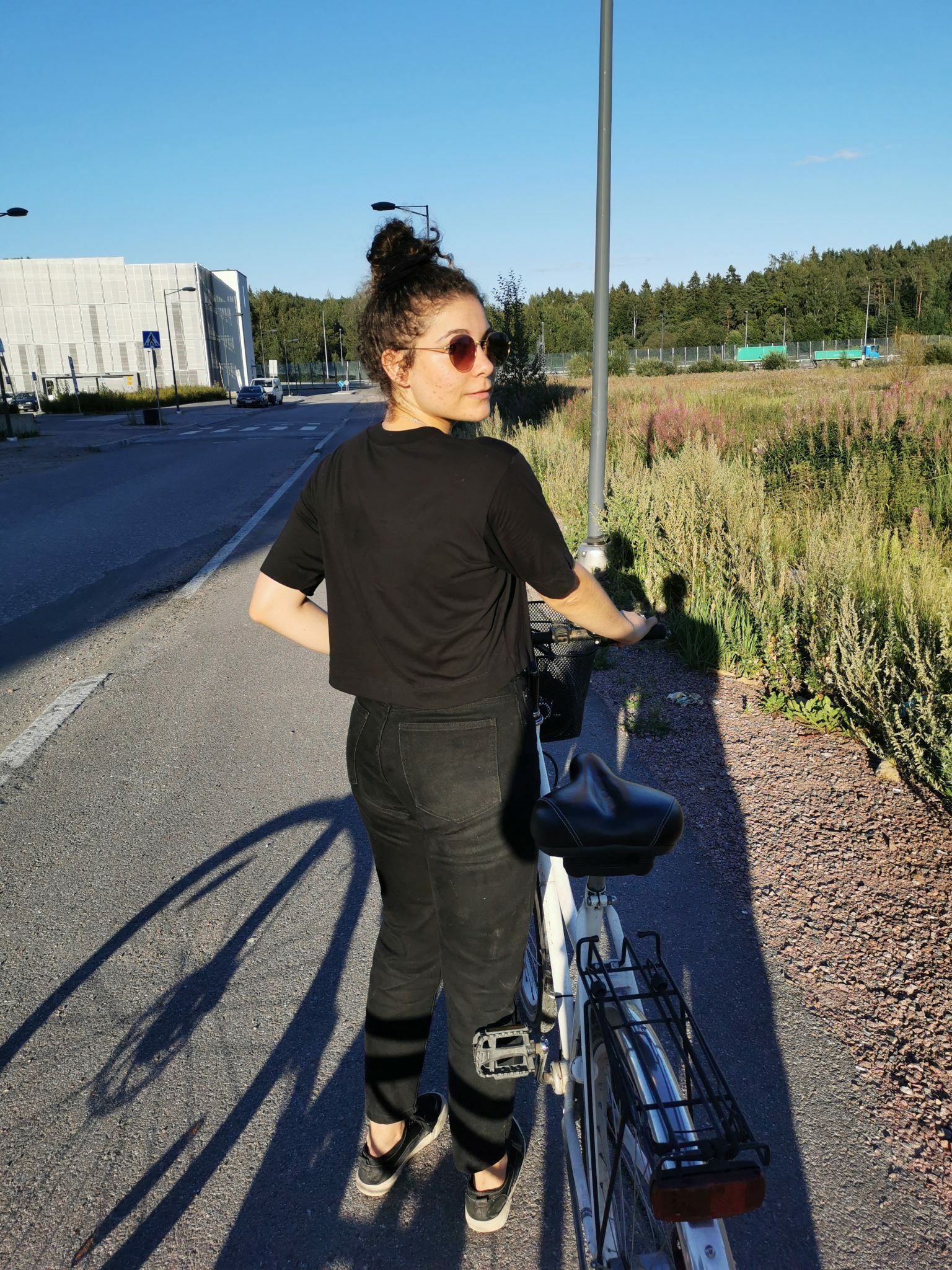I’m the kind of person who will do intensive research about a specific product type before making a purchase.
Also the type to watch a hundred videos about a new interest or hobby, just to make sure I’m doing everything as optimally as possible.
My typical response to a question I don’t know the answer to is “have you Googled it?”
I don’t usually make rash decisions before carefully weighing all the pros and cons at least five times in my head, on paper, and maybe with a close friend’s objective input.
The catch:
I’m also the person who half accidentally moved to another country in the middle of a pandemic.
To Finland, to be exact.
You remember that song,“Hot & Cold”, by Katy Perry? That was basically my reality when coming from Malta in August to Finland and bracing through my first ever Nordic winter.

No matter how much of a planner you are, things will still happen, life might still take you in strange unpredictable directions, and you will still have to learn to be adaptable.
In my case, it’s not like I was being forced to move across Europe, but having finally closed the distance with my long-term, long-distance partner after half a year of travel restrictions, along with entry regulations bingo going on, staying here indefinitely seemed like a no-brainer.
Despite my existing familiarity with Finnish weather, culture, and custom, and a small social circle already in place, this change wasn’t easy.
Any time you’re faced with a big change or life transition, in some way or another, you’re going to be processing everything that happens in small increments until you feel more well-adjusted to your updated reality, and like you’re standing on some solid ground again.
The mind can easily rationalise what’s happening, but physically and emotionally, we usually need some more time to catch up.
While this process is happening, what I find – and keep repeatedly finding – to be extremely helpful in dealing with change is retaining some consistency throughout multiple aspects of my life. This takes the form of:
1. Reaching out to my support network
I feel quite lucky to have an amazing bunch of people in my life, from lifelong friends to super understanding colleagues who care about my life outside of work. I’m sure I’m not the only one who can get a bit overwhelmed by life sometimes to the point where retreating into my own shell feels like the best possible option, but it seldom does the job of making me feel secure and connected.
When moving to a new country where I can’t just text my best friend to go out for a drink that same day (“Hey, want to meet up for cocktails in 6 months” just doesn’t feel as gratifying), this is especially important. Talking about my struggles, my little day-to-day wins, and how my life is going with people I trust is one of the things that always helps.
When I first realised that I wouldn’t be going back to Malta anytime soon, suddenly, the friends I thought I’d be seeing in a couple of weeks seemed so far away. The only way not to feel like I was losing some important relationships was to consciously make the time and effort to connect through video chats and phone calls when possible.
2. Taking my time to sit with my experiences
Balance is a big priority in my life.
As much as I like to talk about anything and everything with friends, I also need to process my experiences through my own lens, on my own time, by myself.
This can take the form of writing, sitting on the couch doing nothing but being with my own thoughts, drawing, meditating.. You get it.
It’s also one of the hardest things to make time for. When you have the opportunity to sit on the couch and watch Netflix after a day’s work, it takes a lot of effort to opt for sitting down with yourself and taking some mental inventory instead. The instinct to push down your feelings can be very strong, even though it’s not very helpful in the long run, and can lead you to becoming detached from yourself and your experiences.
3. Staying in touch with friends and family
This is a bit different from point no.1 – rather than making it all about myself and going on and on about how cold and dark it is (and how the Christmas lights here are not a smorgasbord of different colours flashing at different rhythms but a more subtle consistent light yellow), leaving space to others to talk about their lives makes life feel more normal.
If you normally call your mum every other day and see your sister every other weekend, staying in touch with them not only makes you feel more grounded, but the consistency in communication also makes it easier to stay connected.
Our core relationships can be great reminders of the joys of being human, and making the time to nurture them can make all the difference between feeling lonely and alone, and feeling like you actually matter.
4. Doing all the physical movement
Big changes can be anxiety-inducing, and one of the best ways I found to relieve that anxiety and get out of my own head was to move – literally.
During the pandemic, one of my coping mechanisms for dealing with lockdowns and working from home without losing my sanity, was going on long walks around my neighbourhood.
When leaving the house felt too hard, doing home workouts and developing a daily morning yoga habit really saved my mental health. The endorphin release you get from exercising is seriously hard to beat.
These habits, along with the commitment to move my body as much as I could, came with me in my move, and they made the transition more bearable, and when you’re still working from home while it’s -10 degrees outside and you’re only getting 4 hours of sunlight in a day, you need all the boosts you can get.

5. Remembering my hobbies
This is a tough one, but it’s oh so-rewarding. It’s very easy to get caught up in a new environment and in the process of adapting to all the new stimuli you’re surrounded by. It’s almost like being entangled in a new romance – it’s exciting, it’s a little overwhelming, and it takes up a lot of your mental space.
However, just like when you’re entering a new relationship, focusing on your individual life is still extremely important. The more I remembered the constants in my life that I could take with me wherever I went, be it reading, writing, or taking pictures, the more I found it easier to feel like myself, and not like someone whose entire identity was dependent on their environment.
Going back to the love interest metaphor, the idea of throwing away your identity and absorbing your new bae’s hobbies and opinions is sort of ridiculous (not to mention super unhealthy). Moving abroad is not too different.
While it’s natural to change and evolve as you become exposed to new things in life, feeling like you’re losing yourself, on top of adjusting to a new country, as well as the uncertainty a global pandemic brings with it, is a recipe for a mental breakdown. Trust me.
Do what you love, and think of it as self-care, sans face masks and manicures.

6. Eating my greens ? (yes, specifically broccoli)
Finally – and I’m going to sound like one of those Instagram fitness gurus here, but I don’t mind – keeping my nutrition in check and not only stuffing my face with chocolate whenever I was feeling overwhelmed did a really good number on me in the long-term.
Eating a balanced diet full of vegetables, plant-based protein, and *gasp* an adequate amount of pasta, made me feel infinitely better than if I gave in to my cravings without compensating with nutritionally rich food.
And in case you don’t believe me when I say that the food you eat can have a big impact on your mood, honestly, just Google it.
Lessons learned
My life changed drastically within a time of even more drastic change (a little bit of a change-ception).
When we moved to working completely remotely, relying only on video calls and instant messaging, it wasn’t out of a spontaneous, deliberate choice. The pandemic stopped everything that we knew, erased it, and made us start over.
And it’s really hard to start over. It’s hard not to get stuck in your head when the normal limits of work, the 9 to 5, the daily commute that keeps work and personal life separate, become blurred. This already makes you need good coping mechanisms to get you through.
When you move abroad and your normal routine is even more upset, the blurring is even greater, even when it’s ultimately your decision.
So take care of yourself. Eat a balanced diet, do what you love, move often, and make time to connect with the people you care about, work-related or not. If you’re working from home and you haven’t seen another human being in the last few months, you need it.
Don’t put it off.




